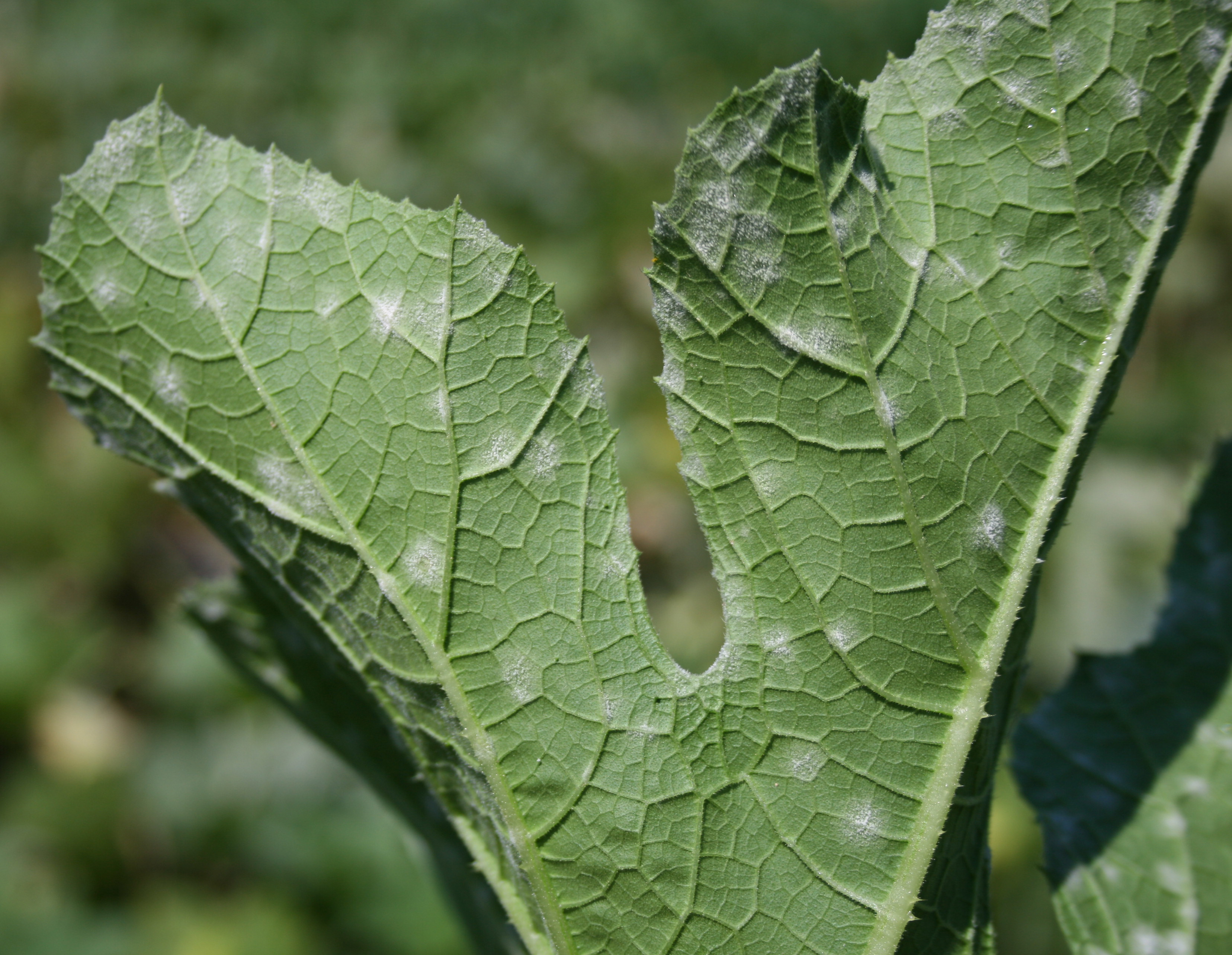Powdery Mildew of Cucurbit Crops
Return to Diseases
Powdery mildew (Podosphaera xanthii, Golovinomyces spp.) affects all cucurbits. Symptoms first appear on leaves that are older or on shaded portions of the plants. Mildew-like fungal growth appears on upper and lower leaf surfaces beginning at fruit set. As disease progresses, the entire leaf surface will be colonized, often spreading to stems and fruit. Severely infected leaves become necrotic and die within a short period, which can result in blighting or complete defoliation. Affected plants are more susceptible to other diseases.
Powdery mildew on upper pumpkin foliage.
(Photo: Kenny Seebold, University of Kentucky)

Powdery mildew on lower pumpkin foliage.
(Photo: Timothy Coolong, University of Kentucky)
Powdery mildew on cucurbit vine.
(Photo: Timothy Coolong, University of Kentucky)
Management:
- Select resistant varieties (cucumber, muskmelon, and pumpkin)
- Space plants for air circulation and rapid drying.
- Apply protectant fungicides beginning at fruit set and through the season.
- Manage weeds and potential alternative hosts.
